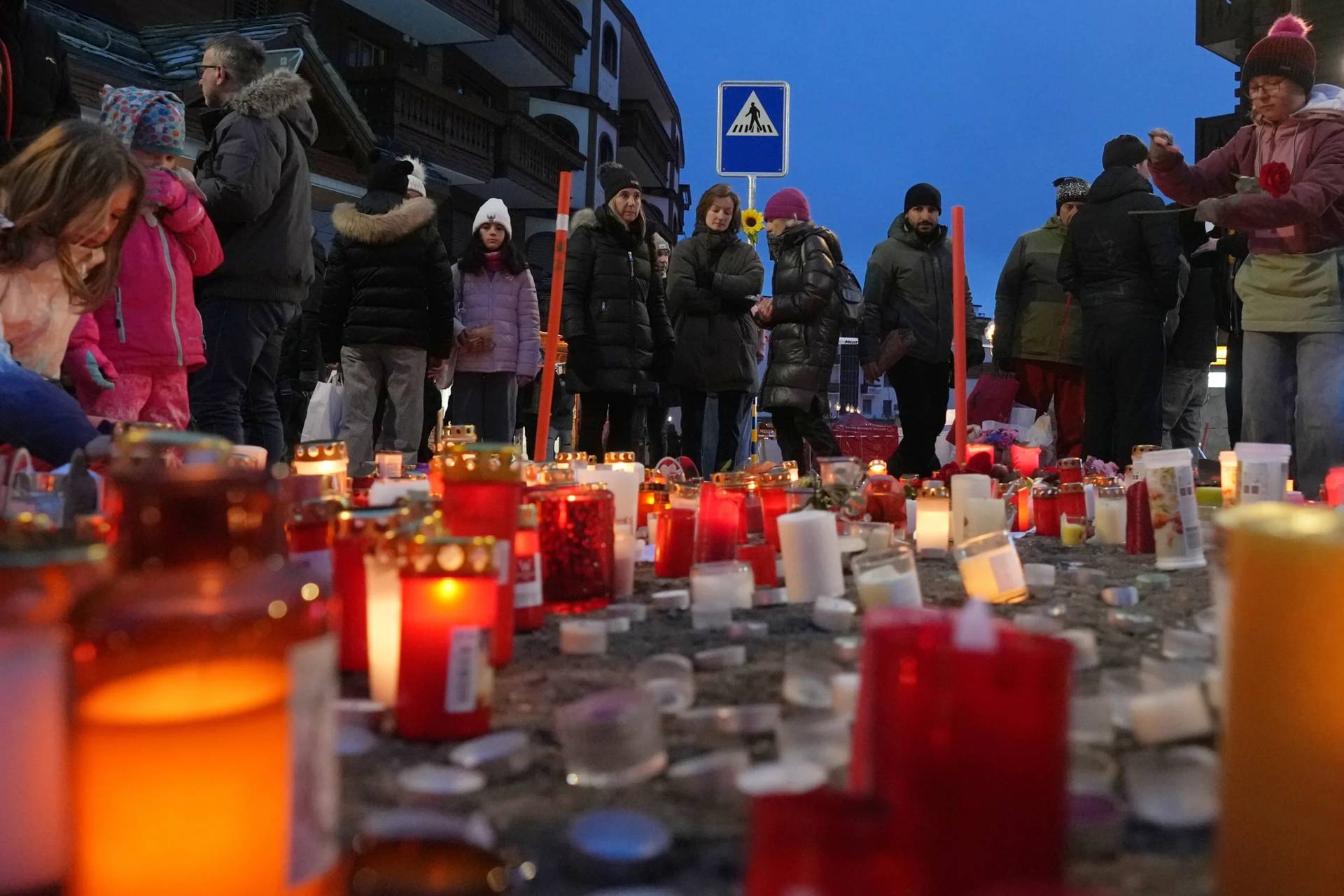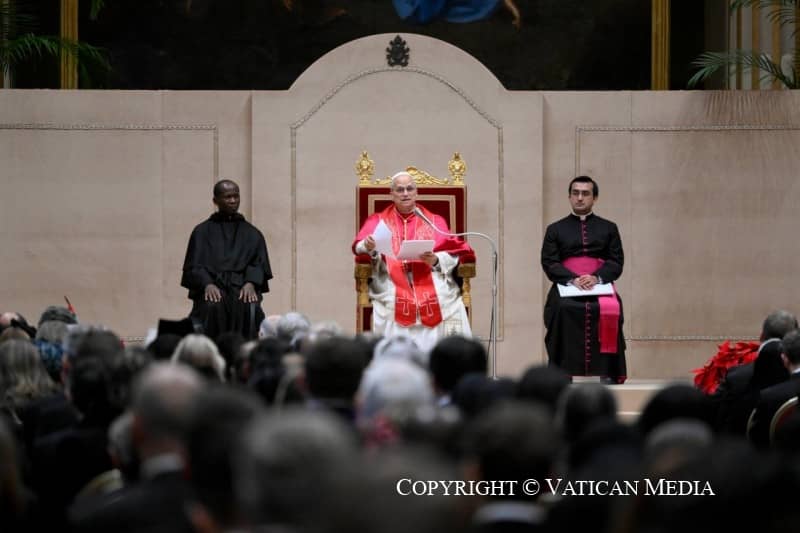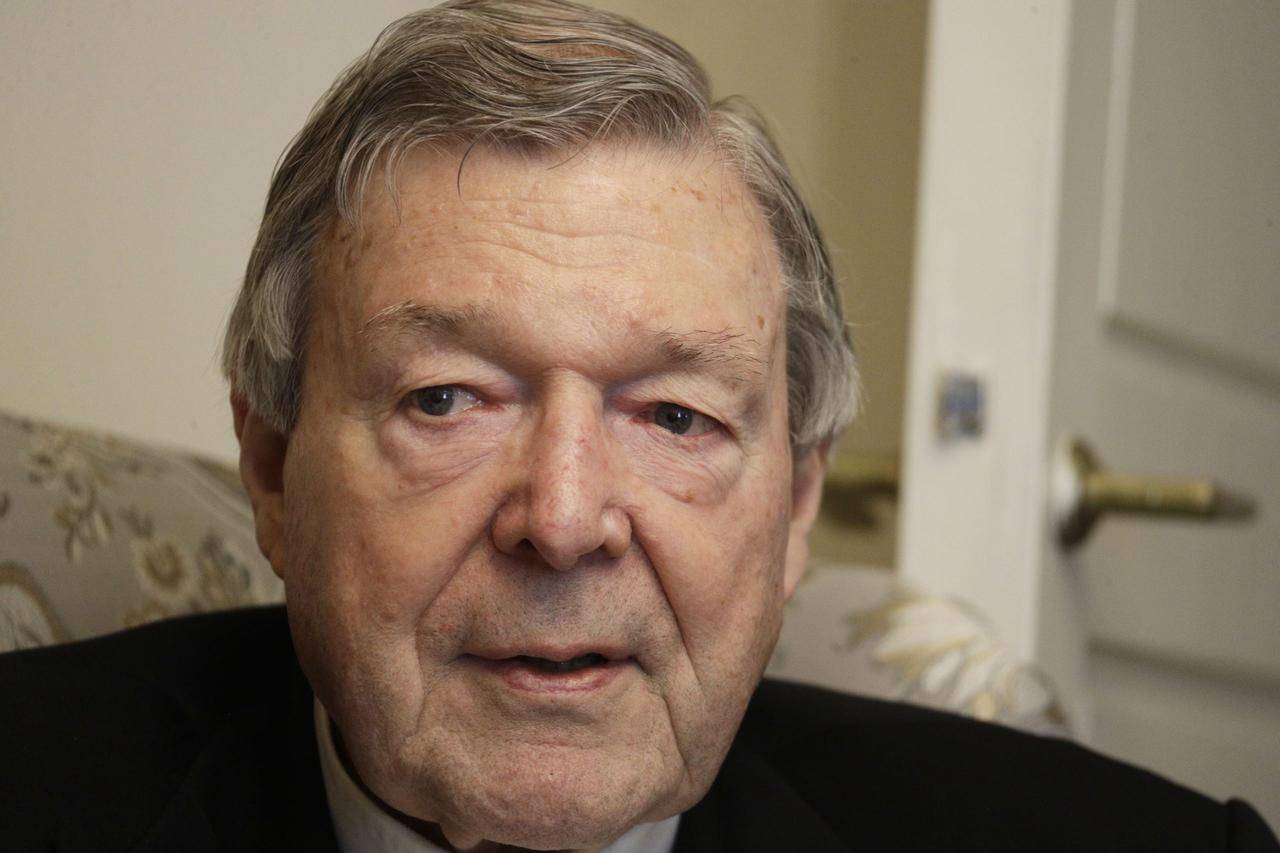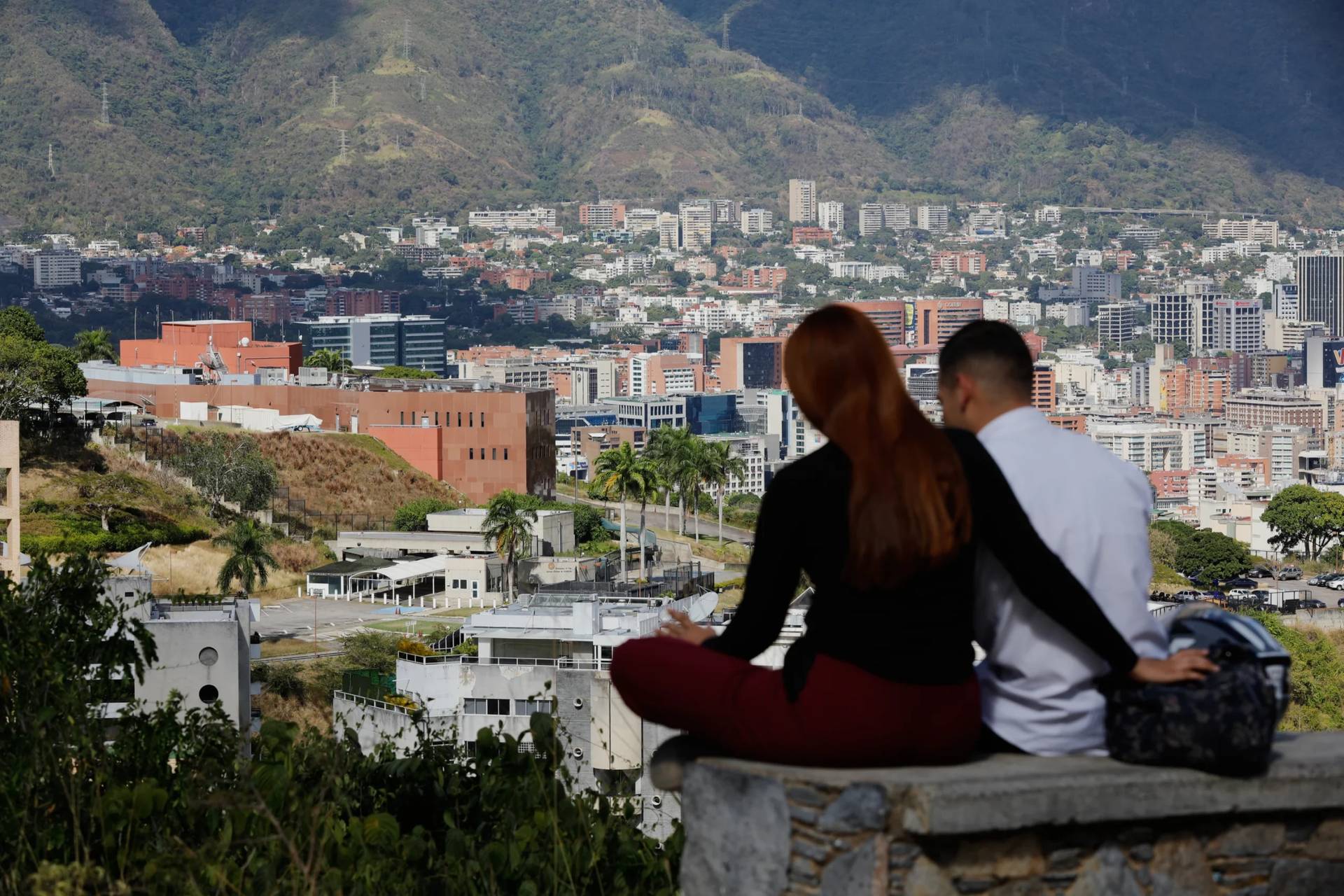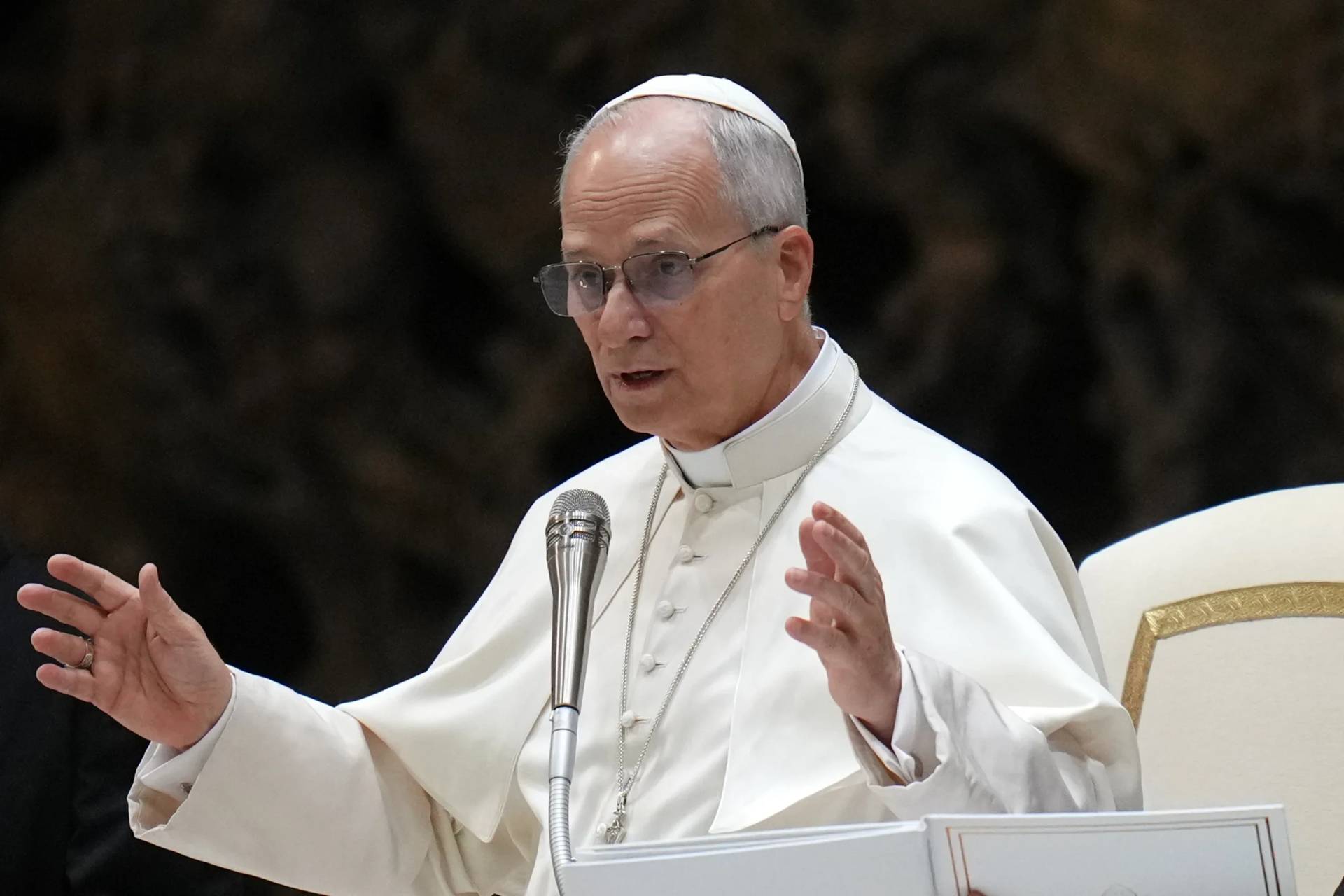ROME – Ahead of looming European elections in June, and with a war on the continent still raging, the president of the European bishops has stressed the need for unity and setting aside partisan interests following a meeting with Pope Francis.
Speaking to the Italian news agency SIR after a Jan. 26 meeting with the pontiff, Bishop Mariano Crociata of Noto in Italy said the upcoming June 6-9 European Parliamentary elections are a “critical step” for the continent.
“In fact, the possibility that the political orientations of voters will give rise to a majority capable of looking seriously to the future of the European Union is being tested,” he said, but voiced concern about participation, calling for awareness to be raised about the importance of voting.
Crociata’s language may have been a veiled reference to polls, including a recent survey by the European Council on Foreign Relations, which forecast major gains for the far right in the June ballot. Although projections are that pro-EU moderates and progressives may still be able to cobble together a majority, the far-right Identity & Democracy faction is projected to become the third largest bloc in the European parliament.
Crociata, who serves as president of the Commission of the Bishops’ Conferences of the European Union (COMECE), said there is an image, and often a reality, of the European Union which moves forward “by ignoring the sensitivities, needs and problems of the peoples of which it should be an expression and guide.”
“This fuels intolerance, rejection, and therefore also anti-Europeanism and absenteeism,” he said.
In terms of European integration, Crociata said it has grown in recent decades, despite some stalls along the way, and said there is a need for more “decisive steps forward” in various areas to strengthen Europe’s global influence.
“Unfortunately, the European Union appears weak in the geopolitical context, despite having taken clear and coherent positions, as, for example, in the case of the war in Ukraine and in the fight against climate change,” he said.
Europe must “grow in the same direction,” he said, but cautioned that “this would require overcoming partisan selfishness, not to be confused with the legitimate cultural freedom and identity and the values of each people.”
Citizens must be involved in order for European unity, growth and integration, he said, cautioning that “The risk of divergence is great.”
“For this reason, everyone needs to share a sense of values and spirituality, a soul,” he said.
Crociata, who took over last year for Luxemburg archbishop and close papal aide Cardinal Jean-Claude Hollerich as president of COMECE, met Pope Francis Jan. 26 at the Vatican to discuss a variety of issues, including Europe’s global standing, migration, the war in Ukraine, and the upcoming EU elections.
In his interview with SIR, Crociata described his conversation with the pope as “very serene and attentive,” saying Francis was both sensitive and thoughtful about current status of the EU and its future.
“He always starts from the initial inspiration of the union, as found in the great figures who started it immediately after the tragedy of the Second World War,” Crociata said.
The pope, he said, touched on several topics, including the freedom of Europe, “understood first and foremost as a breath of peoples, who must have the opportunity to express themselves, their culture and their values, in a constructive and creative relationship with other peoples linked through their respective countries and by precise commitments of the European Union.”
Crociata advocated for EU enlargement, saying significant growth can come from allowing entry to countries waiting to join, such as Ukraine and Moldova, with whom accession negotiations have already begun, and Georgia, which has been granted official candidate status.
In December Crociata praised what he said were the “historic decisions” regarding Ukraine, Moldova and Georgia, saying it sent a message of hope to the citizens of countries which have long held out hope of joining the EU.
“The more the European Union assumes the dimensions of Europe as a whole, the more possibility of wars on our continent is removed and the dynamic that leads toward a true, ever stronger unity and towards a solid balance among Union bodies and citizens is strengthened,” Crociata told SIR.
He said Pope Francis also expressed concern for various global conflicts, including the war in Ukraine, and for the issue of migration.
“Migration is a thorn that causes great suffering,” he said, saying it is “unthinkable” that Europe, with a rapidly dropping birth rate, fails to recognize “the need for a contribution such as that of immigrants for its survival.”
Measures such as the recent EU Pact on Migration and Asylum are evidence of the desire to find a common approach to the issue by member countries, he said, however, he said cautioned that there is also a tendency “to pass onto others the burden and the effects of the immigration flows and to put security and the defense of borders above the duty to welcome and of solidarity.”
“We need to move toward a vision that together gives order to the migration flows and integration processes, and of integration in the various countries according to possibility and in a proportionate manner,” Crociata said.
Another topic Pope Francis addressed that is relevant for COMECE’s work, he said, is the institutional dialogue between ecclesial and civil entities, he said, saying at times this dialogue is done “profitably,” and at other times “it runs the risk of becoming a formality.”
“It is important that it is strengthened with the new Parliament and the new Commission that will emerge from the June elections,” he said.
Crociata also sent a message to young people casting a vote for the first time, saying they are agents of “change and renewal.”
“Younger people must be told that Europe is their tomorrow, which they are called to build right now, so that their present anticipates the best of what they desire for themselves and for everyone in the future,” he said, saying, “Voting is the first decisive step in the right direction.”
Follow Elise Ann Allen on X: @eliseannallen








